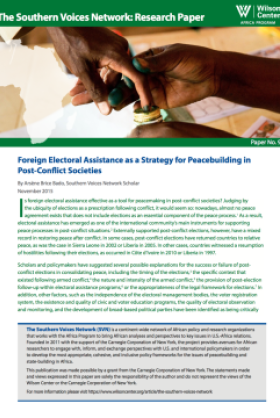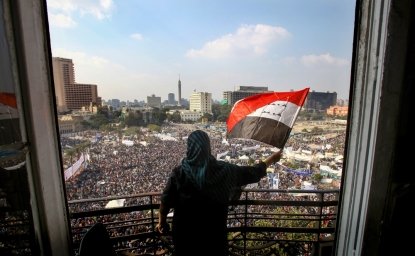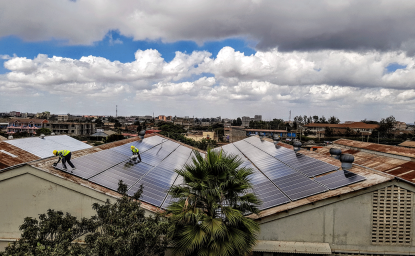The Importance of Enhancing Civic Education in Post-Conflict Elections


For an in-depth analysis, see the Southern Voices Network Research Paper no. 9 "Foreign Electoral Assistance as a Strategy for Peacebuilding in Post-Conflict Societies" (PDF).
Civic education in post-conflict elections has not received nearly the attention that it deserves, thereby missing the opportunity to consolidate and build on what is often a very fragile peace. The United States and other major electoral assistance providers should pay more attention to civic education activities during post-conflict electoral processes in order to ensure sustainable peace. Indeed, if civil war is fundamentally a breakdown of trust between societal actors, then in the aftermath of a violent civil war, the most urgent task is to make it possible again for people to live peacefully together. Restoring trust between societal actors must, therefore, become a central objective of any post-conflict election. This goal may be achieved through civic education, which helps to transform the post-conflict electoral process into a peacemaking process by improving the relationship between electoral stakeholders as well as between former combatants in the conflict. Electoral civic education is about the strengthening of democratic values, and includes awareness-raising activities focused on topics such as basic human rights; the role, responsibilities, and rights of voters; the nature and powers of the offices to be filled in the election; the relationship between elections and democracy; the major issues facing the country; and peace and national reconciliation.1
In post-conflict settings, civic education plays a critical role in demilitarizing the mindset of combatants and others affected by the war by strengthening their commitment to peace.2 Giving up arms, leaving an armed group, and finding a new job do not necessarily and immediately transform a combatant into a civilian or a warring group into a political party. Underneath this change of status and goals lays a change of identity that involves new values, new ideals, and new goals. Civic education plays a critical role in fostering such a change of identity and in the setting of new goals and new values, as well as providing the opportunity to the constituency and to the entire population to discern a new social contract for a peaceful co-existence despite the grievances of the war. Value-oriented training that can positively impact the preferences, interests, and behaviors of parties to a post-conflict election are therefore critical. Indeed, while voting procedures may fall short, a political compromise can always save the peace and electoral process.
Policy Options and Recommendations
1. For the U.S. Government and Other Providers of Electoral Assistance in Post-Conflict Settings
a. Prioritize peacebuilding through civic education: For post-conflict electoral processes, the U.S. government should prioritize peacebuilding through civic education activities, and not only through military and other security-related activities. The best way to achieve electoral security and restore sustainable peace after a civil war is to support large-scale civic education activities. For example, the U.S. government spent $922,280 in 2015 in order to enhance the capacity of post-conflict Central African Republic (CAR) to mitigate threats to national and international security and stability, which it plans to increase to $11.65 million in 2016.3 Conversely, the U.S. government had no budget line in 2015 for civic education, democracy, and human rights activities in CAR, although it plans to spend $3 million in 2016.4 An important option for the U.S. to consider is increasing this amount to $6 million each year for the next three years in order to ensure sustainable peace.
b. Create inclusive electoral civic education: Electoral civic education should include all relevant parties to the war, not only parties to the post-conflict election, in order to increase the probability of peace. For instance, CAR failed to hold post-conflict elections in October 2015 primarily because of the negative actions of groups that did not feel they had a stake in the election. Civic education that includes all electoral stakeholders and parties to the armed conflict strengthens inclusiveness and ownership in the process, which in turn increases the potential to mitigate violence.
c. Engender local and inclusive ownership of the peace agreement and explain the role of elections: In the aftermath of an armed conflict, civic education for the larger population should include an explanation of the peace agreement so that citizens may take ownership of the peace process and prevent former warring parties from hijacking it. This is particularly important as post-conflict elections are often explicit provisions of peace agreements. For example, during the successful Liberian post-conflict elections of 2005, electoral assistance providers including the EU, International Republican Institute, and Carter Center, supported and trained 130 civil society organizations appointed by the Liberian National Election Commission to disseminate information not only on the voting process, but also on the peace process and the importance of the elections in consolidating peace.
d. Promote education on democratic ideas: Donor-sponsored training activities should not be limited to the provision of information and materials that aim to inform voters on the mechanics of voting operations. They should also include electoral civic education activities that emphasize democratic value-oriented activities, which play a key role in stabilizing the post-conflict electoral process. For example, during the failed Liberian post-conflict election of 1997, the three-month time limit for preparing and conducting the elections led electoral assistance providers to ignore civic education in favor of voter information on voting procedures. Partly as a result, these elections did not consolidate peace.
e. Hold political parties accountable for their commitment to peace: In post-conflict settings, assistance providers should demand that political parties explicitly commit to and signal to the general population their preference for peace through elections rather than military solutions. Assistance providers can help to realize this commitment by supporting and engaging in robust civic education focused on party platforms. For instance, in the failed Ivoirian post-conflict elections of 2010, political parties went to the elections but never discarded the possibility of war. Conversely, in the successful Liberian post-conflict elections of 2005, electoral assistance providers helped political parties send explicit signals of their preference for ballots over bullets to restore peace. With support from donors, Liberian political parties even provided civic education trainings to their members.
Endnotes
1. Institute for Democracy and Electoral Assistance (IDEA), “The Concepts of Civic Education, Electoral Education and Voter Awareness,” IDEA, July 4, 2006. http://www.idea.int/europe_cis/armenia/workshop_civiced.cfm
2. Susan Palmer, Yinka Oyinlola, Helena Alves, and Alexander Knapp, Report of an Electoral Assessment and Planning Mission to Liberia (Washington, D.C.: International Foundation for Electoral Assistance (IFES), 2004). http://www.ifes.org/publications/report-electoral-assessment-and-planning-mission-liberia-april-4-25-2004
3. “Foreign Assistance in Central Africa Republic,” ForeignAssistance.Gov, accessed November 10, 2015: http://beta.foreignassistance.gov/explore/country/Central-African-Republic
4. Ibid.
Arsène Brice Bado served as a Southern Voices Network Scholar at the Wilson Center from September to November 2015. He is Associate Researcher at the Centre de Recherche et d’Action pour la Paix (CERAP) in Abidjan, Côte d’Ivoire, which is a member of the Southern Voices Network.
This publication was made possible by a grant from the Carnegie Corporation of New York. The statements made and views expressed in this paper are solely the responsibility of the author and do not represent the views of the Wilson Center or the Carnegie Corporation of New York.
Author

Associate researcher, CERAP

Africa Program
The Africa Program works to address the most critical issues facing Africa and US-Africa relations, build mutually beneficial US-Africa relations, and enhance knowledge and understanding about Africa in the United States. The Program achieves its mission through in-depth research and analyses, public discussion, working groups, and briefings that bring together policymakers, practitioners, and subject matter experts to analyze and offer practical options for tackling key challenges in Africa and in US-Africa relations. Read more

Explore More
Browse Insights & Analysis
The Southern Voices Network for Peacebuilding


